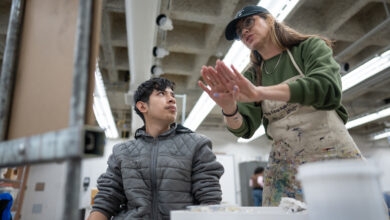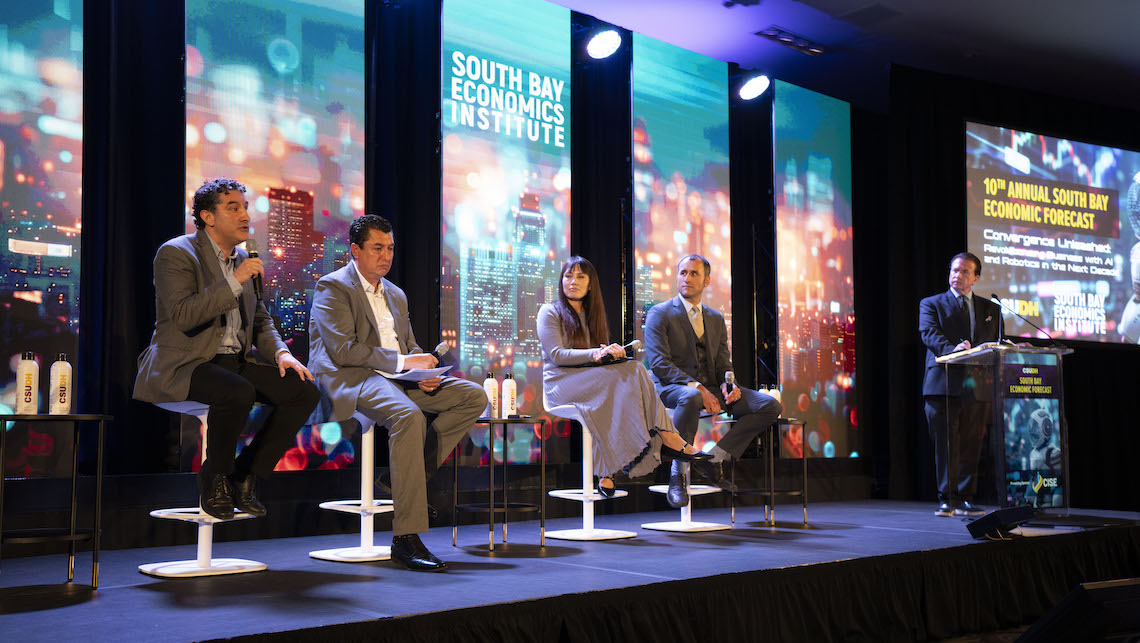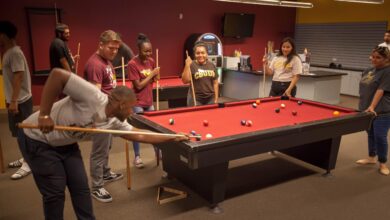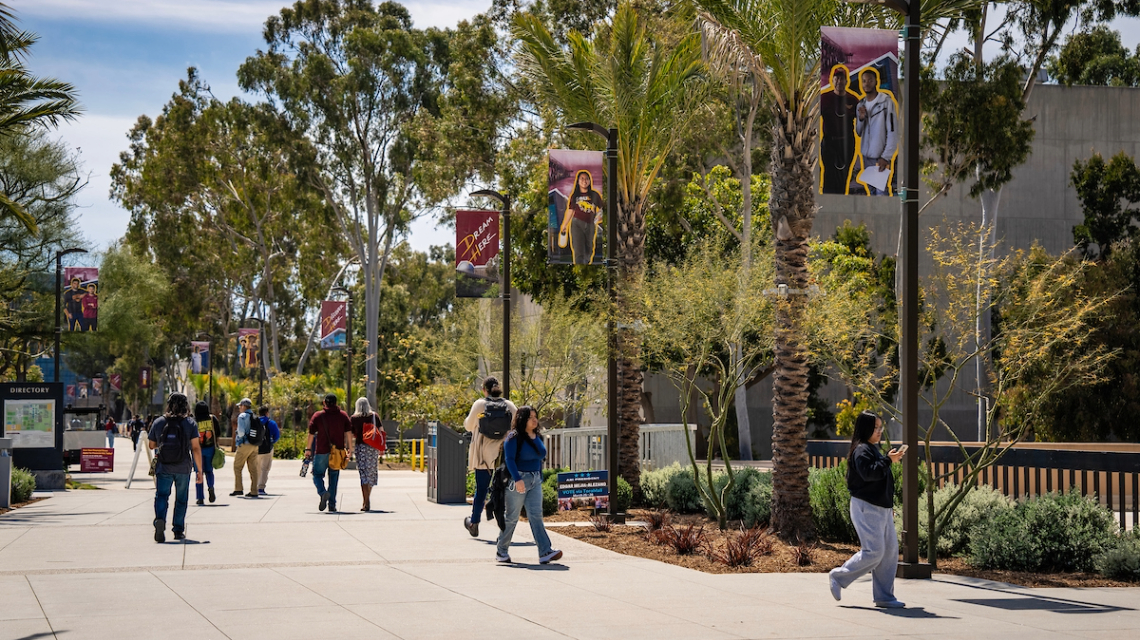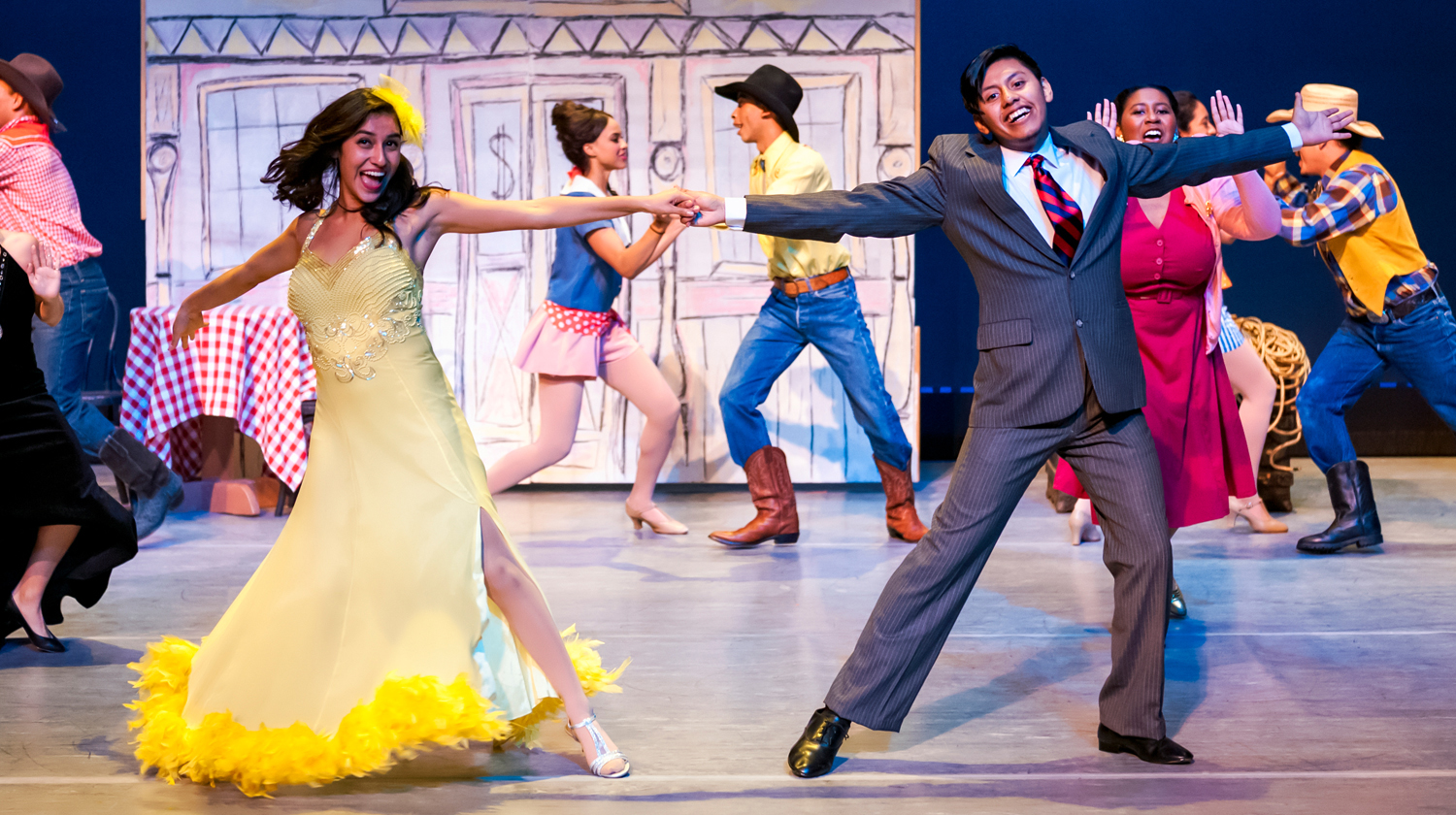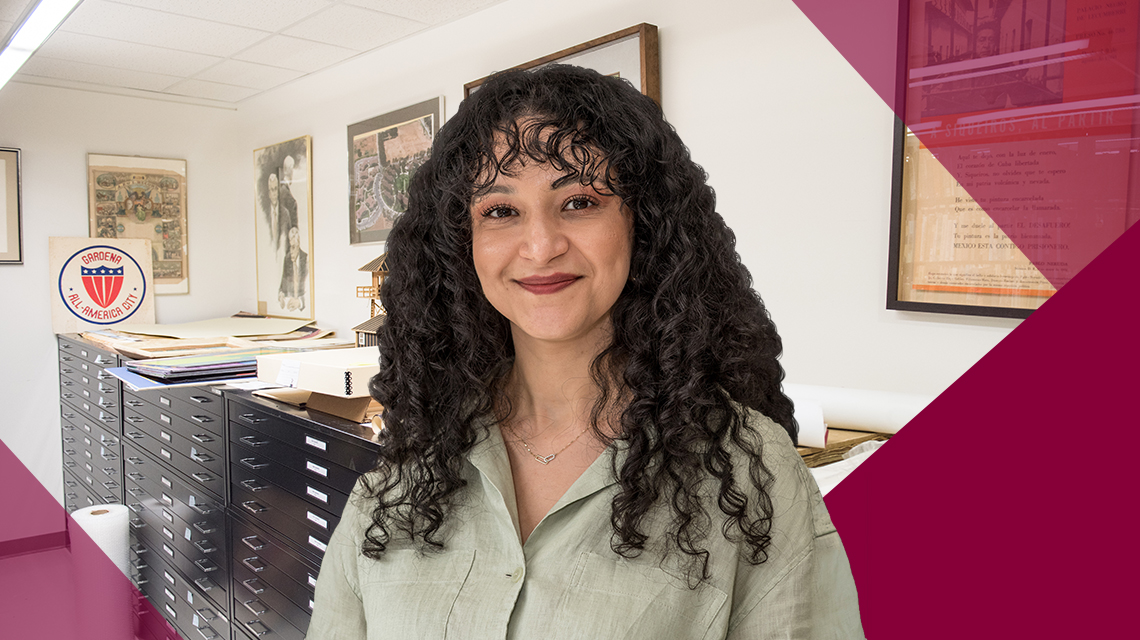 Amalia Medina Castañeda, university archivist at the California State University, Dominguez Hills Gerth Archives and Special Collections, has been selected as one of 15 Rare Book School-Mellon Cultural Heritage Fellows for 2022-2024. The Andrew W. Mellon Fellowship for Diversity, Inclusion & Cultural Heritage is a six-year program that aims to advance multicultural collections through innovative and inclusive curatorial practice and leadership.
Amalia Medina Castañeda, university archivist at the California State University, Dominguez Hills Gerth Archives and Special Collections, has been selected as one of 15 Rare Book School-Mellon Cultural Heritage Fellows for 2022-2024. The Andrew W. Mellon Fellowship for Diversity, Inclusion & Cultural Heritage is a six-year program that aims to advance multicultural collections through innovative and inclusive curatorial practice and leadership.
Castañeda, who is passionate about the recruitment and retention of Black, Indigenous, and people of color (BIPOC) in special collections librarianship, had applied to the fellowship because she was drawn to its inclusive mission.
“Unfortunately, the cultural heritage, museum, and archives field is not racially and culturally diverse, and has only made mild progress over the past 25 years-fewer than 10 percent of curators, archivists, or special collections librarians are BIPOC,” Castañeda said.
“I knew that this fellowship would afford me access to an intellectual community of BIPOC archival scholars whose interests lie at the intersection of librarianship, community, and archives.”
As a prospective fellow, Castañeda is looking forward to learning from a community that is committed to making an impact on real people, rather than just the archival collections themselves. She is especially attracted to the outreach and community symposia components of the fellowship, and is working with CSUDH campus affinity centers to host an LGBTQ History Month event in Fall 2022.
Castañeda also plans to provide hands-on “Introduction to the Archives” workshops for CSUDH students, where they will have the opportunity to engage with the Gerth Archives’ LGBTQ history collections.
“We are only truly fulfilling our mission when we continuously create opportunities for our students to discover and interact with the materials at the Gerth Archives,” she said.
In addition to her role at CSUDH, Castañeda also serves as board chair at the Museum of Social Justice, an institution that chronicles the history of Los Angeles’s marginalized communities through exhibitions, public programs, and educational initiatives. She says that ultimately, her archival and public history work is rooted in people and ensuring communities of color see themselves in the cultural record.
“Serving a grassroots museum like the Museum of Social Justice and at one of the California State University campuses with the highest percentage of Black and Latinx students has shaped my understanding of how archivists and cultural heritage practitioners can reach the people they intend to serve,” Castañeda said.
“As a Cultural Heritage fellow, I look forward to working with colleagues to lead both large and small-scale events that are authentically community-centered.”

